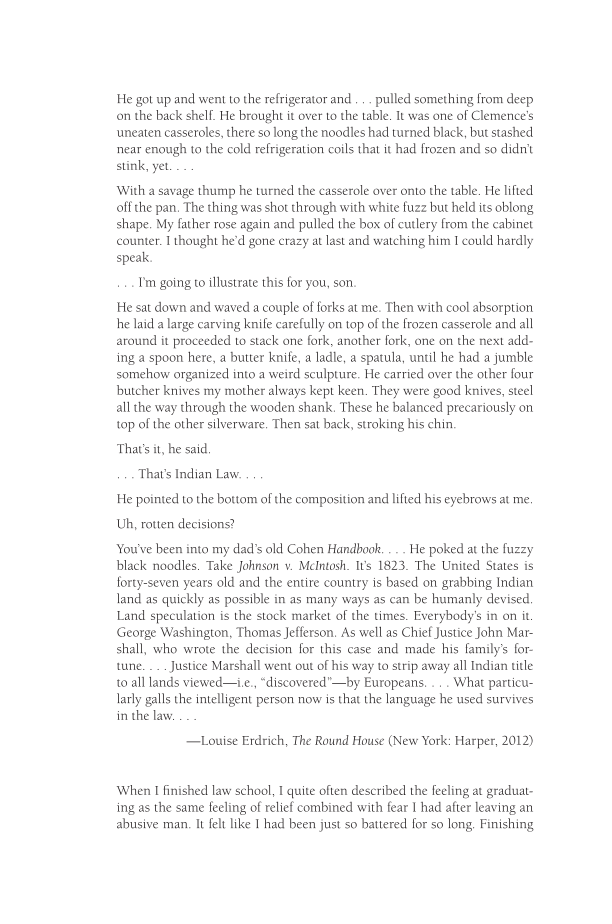He got up and went to the refrigerator and . . . pulled something from deep on the back shelf. He brought it over to the table. It was one of Clemence’s uneaten casseroles, there so long the noodles had turned black, but stashed near enough to the cold refrigeration coils that it had frozen and so didn’t stink, yet. . . . With a savage thump he turned the casserole over onto the table. He lifted off the pan. The thing was shot through with white fuzz but held its oblong shape. My father rose again and pulled the box of cutlery from the cabinet counter. I thought he’d gone crazy at last and watching him I could hardly speak. . . . I’m going to illustrate this for you, son. He sat down and waved a couple of forks at me. Then with cool absorption he laid a large carving knife carefully on top of the frozen casserole and all around it proceeded to stack one fork, another fork, one on the next add- ing a spoon here, a butter knife, a ladle, a spatula, until he had a jumble somehow organized into a weird sculpture. He carried over the other four butcher knives my mother always kept keen. They were good knives, steel all the way through the wooden shank. These he balanced precariously on top of the other silverware. Then sat back, stroking his chin. That’s it, he said. . . . That’s Indian Law. . . . He pointed to the bottom of the composition and lifted his eyebrows at me. Uh, rotten decisions? You’ve been into my dad’s old Cohen Handbook. . . . He poked at the fuzzy black noodles. Take Johnson v. McIntosh. It’s 1823. The United States is forty-seven years old and the entire country is based on grabbing Indian land as quickly as possible in as many ways as can be humanly devised. Land speculation is the stock market of the times. Everybody’s in on it. George Washington, Thomas Jefferson. As well as Chief Justice John Mar- shall, who wrote the decision for this case and made his family’s for- tune. . . . Justice Marshall went out of his way to strip away all Indian title to all lands viewed—i.e., “discovered”—by Europeans. . . . What particu- larly galls the intelligent person now is that the language he used survives in the law. . . . —Louise Erdrich, The Round House (New York: Harper, 2012) When I finished law school, I quite often described the feeling at graduat- ing as the same feeling of relief combined with fear I had after leaving an abusive man. It felt like I had been just so battered for so long. Finishing
Document Details My Account Print multiple pages
Print
You have printed 0 times in the last 24 hours.
Your print count will reset on at .
You may print 0 more time(s) before then.
You may print a maximum of 0 pages at a time.

























































































































































































































































































